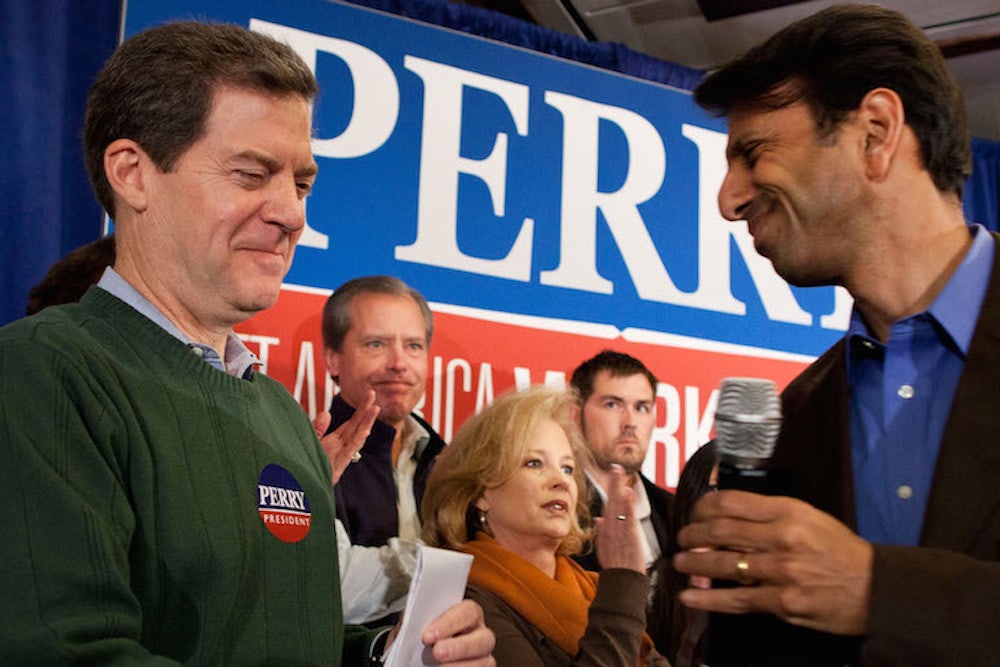There's a line of thinking about state-based resistance to the Affordable Care Act which holds that it is to some large degree an outgrowth of spite directed at Barack Obama specifically, and that it will begin to fade once Obama is out of office and the right stops treating anything but massive resistance to Obamacare as a form of collaboration with a particularly loathsome adversary.
I think there is something to this, but that it is a much smaller phenomenon than ACA supporters hope.
As evidence, I'd point to reporting by TPM's Dylan Scott, who finds that GOP state legislatures in Georgia and Kansas are taking steps to insure against the risk of future Democratic governors by eliminating the governors' power to expand Medicaid unilaterally.
Kansas and Georgia aren't likely to elect Democratic governors anytime soon. But they're much more likely to elect Democratic governors than they are to elect Democratic state legislatures. And so Republicans in those states want the road to Medicaid expansion to run through their legislatures instead.
Setting aside normative judgments about the non-expansion policy for a moment, what they're saying is that their objection to the Medicaid expansion is real and enduring; not something they expect will change after Obama's presidency is over. If the right's objection to Medicaid expansion was actually just a temporal primal scream about Obama's presidency, state legislators wouldn't necessarily want this power. In fact, if deep down they believed the non-expansion position couldn't hold, they'd probably prefer to keep the power in the governors' offices, so that they can be held blameless if and when the pressure to expand Medicaid becomes overwhelming.
What they're doing instead is teeing up high-profile confrontations with future governors, Democratic or Republican, over Medicaid expansion, much like the one taking shape in Virginia right now. And you don't do that if you think your position can't hold.
That's real commitment. Unfortunately, it's commitment to the position that their poorest constituents should remain uninsured in perpetuity—no matter who's running the state or the country, or whether other states show health, economic or other gains as a result of expanding their Medicaid programs. And if governors Deal and Brownback support these bills, there's a good chance they will.
